

Tao Te Ching
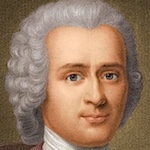
Jean-Jacques Rousseau
1712 – 1778 CE
Motherless from almost birth, abandoned by his father, poor in health and income; Rousseau wandered on his own for 12 years challenging the status quo and rejected by society as a dangerous rebel or insane criminal. Stoned by neighbors when he went for walks, harassed by police, and expelled from countries; he went on to become “the finest thinker of his time,” a main source for Jefferson and the Declaration of Independence, a cause of the French Aid for the American Revolution, and a seminal influence on Tolstoy, Wordsworth, Thoreau, Byron, Shelly, Keats, Schopenhauer, Kant, Goethe, and Marx. He transformed education, inspired the French Revolution and the Romantic Movement, wrote political and social books that became cornerstones of modern thought.
Eras
Chinese
Qing dynasty (1644 – 1912 CE)Unlisted Sources
A Discourse on the Origin of Inequality (1754)
Confessions
Confessions (1782)
Émile
Emilé (1762)
Émile, 1762
Letter (1756)
Letter (1762)
On the Origin of Inequality
Social Contract
The Social Contract
Quotes by Jean-Jacques Rousseau (46 quotes)
“Civilization is a hopeless race to discover remedies for the evils it produces.”
Chapters:
80. A Golden Age
Comments: Click to comment
“frequent punishments are a sign of weakness or slackness in the government. There is no man so bad that he cannot be made good for something.”
Chapters:
74. The Great Executioner
Comments: Click to comment
“I hate books; they only teach us to talk about things we know nothing about.”
Chapters:
48. Unlearning
Comments: Click to comment
“I would rather be a man of paradoxes than a man of prejudices.”
Chapters:
78. Water
Comments: Click to comment
“In truth, laws are always useful to those with possessions and harmful to those who have nothing; from which it follows that the social state is advantageous to men only when all possess something and no one has too much.”
Chapters:
53. Shameless Thieves
Comments: Click to comment
“It is too difficult to think nobly when one thinks only of earning a living.”
Chapters:
44. Fame and Fortune
Comments: Click to comment
“let him discover it. If ever you substitute authority for reason he will cease to reason; he will be a mere plaything of other people's thoughts.”
Chapters:
38. Fruit Over Flowers
Comments: Click to comment
“People who know little are usually great talkers, while men who know much say little.”
Chapters:
56. One with the Dust
Comments: Click to comment
“To be sane in a world of madman is in itself madness.”
Chapters:
41. Distilled Life
Comments: Click to comment
“What wisdom can you find greater than kindness.”
Chapters:
63. Easy as Hard
Comments: Click to comment
“To reign by opinion, begin by trampling it under your feet.”
from Émile, 1762
Comments: Click to comment
“I had always been amused at Montaign's false ingenuousness, and at his pretense of confessing his faults while taking good care only to admit to likeable ones”
Comments: Click to comment
“Man is born free, yet everywhere is in chains. One thinks himself the master of others, and still remains a greater slave than they.”
from Social Contract
Comments: Click to comment
“Man was a 'noble savage' when in the state of nature, before the creation of civilization. He has been corrupted by the social interdependence of society.”
Comments: Click to comment
“You are lost if you forget that the fruits of the earth belong to all and the earth to no one!”
Comments: Click to comment
Comments: Click to comment
“He among us who best knows how to bear the good and evil fortunes of this life is, in my opinion, the best educated.”
from Émile
Comments: Click to comment
“The first person who, having enclosed a plot of land, took it into his head to say this is mine and found people simple enough to believe him was the true founder of civil society. What crimes, wars, murders, what miseries and horrors would the human race have been spared, had someone cried out and been believed saying, 'Do not listen to this imposter.'”
Comments: Click to comment
“Every family became a little society, the more united because liberty and reciprocal attachment were the only bonds of its union... The habit of living together soon gave rise to the finest feelings known to humanity: conjugal love and paternal affection.”
from On the Origin of Inequality
Comments: Click to comment
“Metallurgy and agriculture were the two arts which produced this great revolution... it was iron and corn which first civilized men and ruined humanity.”
Comments: Click to comment
“Machiavelli was a proper man and a good citizen; but, being attached to the court of the Medici, he could not help veiling his love of liberty in the midst of his country's oppression... this profound political thinker has so far been studied only by superficial or corrupt readers.”
from Social Contract
Comments: Click to comment
“The contradiction between the teaching of The Prince and that of the Discourses on Livy and the History of Florence shows that this profound political thinker has so far been studied only by superficial or corrupt readers. The Court of Rome sternly prohibited his book. I can well believe it; for it is that Court it most clearly portrays.”
from Social Contract
Comments: Click to comment
“The first person who enclosed a piece of land said, 'This is mine' and convinced foolish others to believe him became the founder of civil society
creating the beginnings of crime, war, myriad horror and misfortunes.”
Comments: Click to comment
“I prefer liberty with danger than peace with slavery.”
Comments: Click to comment
“The world of reality has its limits; the world of imagination is boundless.”
Comments: Click to comment
“I am not made like any of those I have seen. I venture to believe that I am not made like any of those who are in existence. If I am not better, at least I am different.”
Comments: Click to comment
“Why should we build our happiness on the opinions of others, when we can find it in our own hearts?”
Comments: Click to comment
“Those that are most slow in making a promise are the most faithful in the performance of it.”
Comments: Click to comment
“The flaws that make social institutions necessary are the same as make the abuse of them unavoidable. The progress of inequality began with laws and property rights, developed sovereignty and domination which led to the conversion of legitimate into arbitrary power. The conditions of rich and poor, powerful and weak were established and later the institution of master and slave—a sure sign that this sequence has gone too far and either revolution or radical, internal change imminent.”
from On the Origin of Inequality
Comments: Click to comment
“Oh you, who have never heard the voice of heaven, who think man destined only to live this little life and die in peace; you who reign in populous cities with your fatal acquisitions, your restless spirits, your corrupt hearts and endless desires... retire to the woods, renounce civilizations advances and vices from which always arise more real calamities than even apparent advantages.”
from On the Origin of Inequality
Comments: Click to comment
“Come out of your infancy, my friend; awake!”
Comments: Click to comment
“Since no man has a natural authority over his fellow, and force creates no right, we must conclude that conventions form the basis of all legitimate authority among men.”
from Confessions
Comments: Click to comment
“The greater part of our ills are of our own making... Man, in the state of nature, can have no need of remedies, and still less of physicians”
from On the Origin of Inequality
Comments: Click to comment
“Nothing is more dangerous than the influence of private interests on public affairs”
from Confessions (1782)
Comments: Click to comment
“Christianity preaches only servitude and dependence. Its spirit is so favorable to tyranny that it always profits by such a regime. True Christians are made to be slaves, and they know it and do not much mind: this short life counts for too little in their eyes.”
from The Social Contract
Comments: Click to comment
“Beware of listening to this imposter; you are undone if you once forget that the fruits of the earth belong to us all, and the earth itself to nobody.”
from A Discourse on the Origin of Inequality (1754)
Comments: Click to comment
“Man is by nature good, only our institutions have made him bad.”
from Letter (1762)
Comments: Click to comment
“Voltaire is without doubt a bad man, whom I do not intend to praise; but he has said and done so many good things that we should draw the curtain over his irregularities.”
Comments: Click to comment
“Everything is good as it leaves the hands of the Author of things; everything degenerates in the hands of man.”
Comments: Click to comment
“Egypt became the mother of philosophy and the fine arts; soon she was conquered.”
from The Social Contract
Comments: Click to comment
“Let me learn for once that nature would have preserved them from science as a mother snatches a dangerous weapon from the hands of her child.”
from The Social Contract
Comments: Click to comment
“let us remain in our obscurity... let us leave to others the task of instructing mankind in their duty, and confine ourselves to the discharge of our own.”
from The Social Contract
Comments: Click to comment
“When men are corrupt, it is better from them to be learned than ignorant.”
from Letter (1756)
Comments: Click to comment
“The Jews afford an astonishing spectacle... They mingle with all peoples, yet are not confused with them; they have no rulers, yet they are always a people. Of all the systems of legislation now known to us, only this one has undergone all tests, has always been steadfast.”
Comments: Click to comment
“Nature never deceives us; it is we who deceive ourselves.”
from Emilé (1762)
Comments: Click to comment
Quotes about Jean-Jacques Rousseau (16 quotes)
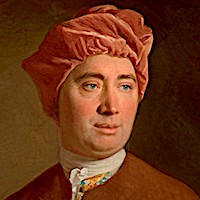 “He is like a man who was stripped not only of his clothes, but of his skin, and turned out in this situation to combat with the rude and boisterous elements.
“He is like a man who was stripped not only of his clothes, but of his skin, and turned out in this situation to combat with the rude and boisterous elements.”
Comments: Click to comment
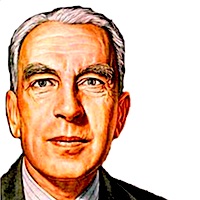
“Another and earlier form of this reversion to barbarism in the West was Rousseau's gospel of the 'return to nature' and the exaltation of 'the noble savage'... The fundamental gospel of archaism was condensed into a sentence, the opening of Rousseau's Social Contract: 'Man is born free and everywhere he is in chains.' Rousseau's most famous disciple was Robespierre, principal author of the french 'Reign of Terror.' ... This idealizing of the primitive pagan 'Nordic' race cannot entirely disclaim responsibility for the Nazi terror”
Comments: Click to comment
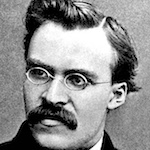
“Rousseau, this first modern man, idealist and rabble in one person — one who needed moral 'dignity' to be able to stand his own sight, sick with unbridled vanity and unbridled self-contempt. This miscarriage, couched on the threshold of modern times, also wanted a 'return to nature'—to what did he really want to return?... what I hate is the Rousseauan morality — the so-called 'truths' of the Revolution through which it still works and attracts everything shallow and mediocre.”
Comments: Click to comment
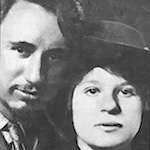
“a man born poor, losing his mother at birth and soon deserted by his father, afflicted with a painful and humiliating disease, repudiated by society and civilization... driven from place to place as a dangerous rebel, suspected of crime and insanity—how did it come about that this man, after his death, triumphed over Voltaire, revived religion, transformed education, inspired the Romantic movement and the French Revolution... had more effect upon posterity than any other writer or thinker of that 18th century?... after his voice was stilled, all Europe listened to him.”
Comments: Click to comment
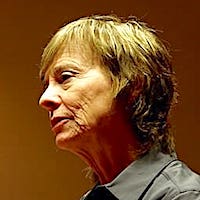
“Sexuality and eroticism are the intricate intersection of nature and culture. Feminists grossly oversimplify the problem of sex when they reduce it a matter of social convention: readjust society, eliminate sexual inequality, purify sex roles, and happiness and harmony will reign. Here feminism, like all liberal movements of the past two hundred years, is heir to Rousseau.”
Comments: Click to comment

“Profound reader of the human heart and undoubtedly the greatest moralist of modern times; Rousseau drew his wisdom not from books, but from life, and intended his philosophy not for the professorial elite, but for humanity. Foster-child of nature and enemy of all prejudice, he could moralize without tediousness, because he hit with the truth and stirred the heart.”
Comments: Click to comment

“Hitler is an outcome of Rousseau; Roosevelt and Churchill, that of Locke... Liberty is the nominal goal of Rousseau's thought, but in fact it is equality that he values, and he seeks to secure even at the expense of liberty.”
Comments: Click to comment
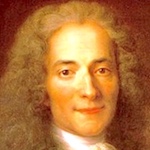
“no one has ever employed so much intellect to persuade men to be beasts. In reading your work one is seized with a desire to walk on 4 paws. However, as it is more than 60 years since I lost that habit, I feel, unfortunately, that it is impossible for me to resume it...”
Comments: Click to comment
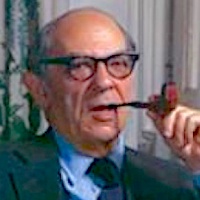
“Some, like Tolstoy, found this in the outlook of simple people, unspoiled by civilization; like Rousseau, he wished to believe that the moral universe of peasants was not unlike that of children, not distorted by the conventions and institution of civilization, which sprang from human vices”
Comments: Click to comment
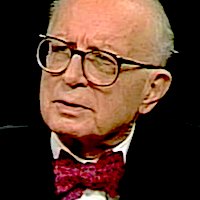
“If admitting faults is a proper claim to respect, Rousseau should be among the most respected of modern men. It is perhaps appropriate that the prototype of modern ‘true’ confessions was written by a madman.”
Comments: Click to comment

“...As with any truly great writer, it is foolish to judge Rousseau by the instances where people tried to follow his advice literally, still less by the harmful things done in his name (by which standard Jesus Christ does not exactly come off unblemished). Rousseau’s influence on modern culture has been far too vast and multifaceted to squeeze into reductive categories of 'positive' and 'negative' and even his most misguided prescriptions often came accompanied by profound and poetic insights.”
Comments: Click to comment
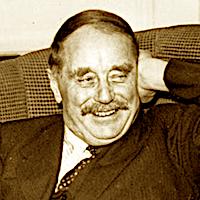
“Rousseau, another outcast spirit, with his sentimental attack on formal morals and his sentimental idealization of nature and freedom, stands out as the master novelist of his time and country... [his] intellectual influence was on the whole demoralizing [and he] did much to popularize a sentimental and declamatory method of dealing with social and political problems.”
Comments: Click to comment

“With what a salutary shock did the paradoxes of Rousseau explode like bombshells in the midst of those lost in admiration of what is called civilization, of the marvels of modern science. Dislocating the compact mass of one-sided opinion, and forcing its elements to recombine in a better form and with additional ingredients. Rousseau's doctrine has floated down the stream of opinion... the superior worth of simplicity, the enervating and demoralizing effect of the trammels and hypocrisies of artificial society... ideas which have never been entirely absent from cultivated minds since Rousseau wrote; and they will in time produce their due effect”
Comments: Click to comment

“Rousseau, not unnaturally, had come to suffer from the persecution mania which ultimately drove him insane... But in the end his delusions won the day and he fled. His last years were spent in Paris in great poverty, and when he died suicide was suspected.”
Comments: Click to comment
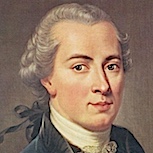
Comments (0)